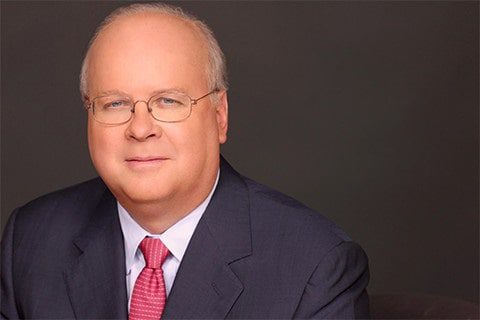
Op-Ed first published in The Wall Street Journal
Opinion
By Karl Rove
Democratic politicos and their media allies have offered illuminating and sometimes entertaining explanations for last week’s Republican sweep in Virginia and Democratic Gov. Phil Murphy’s political near-death experience in New Jersey.
Some blamed the party’s failure to get things done despite total control of Washington for dispiriting the party’s base. New Jersey’s Rep. Josh Gottheimer said Democrats didn’t show voters “we can get our priorities across the finish line.” But if so, why did each Democratic gubernatorial nominee get more votes than any previous candidate for the office?
Perhaps the problem is that Republicans and independents were energized much more by what Democrats promised to do and by the belief that President Biden is mishandling inflation, spending, Covid, immigration, Afghanistan and other issues. Democrats should worry about the growing perception that the administration is incompetent.
Other Democrats claimed the failure to pass their multitrillion-dollar welfare-state expansion robbed candidates of powerful talking points. “The Democratic agenda is popular with swing voters and new Biden voters,” argued Guy Cecil, head of the party’s Senate super PAC, in sharing a survey of eight states with key Senate races next year.
But even though Mr. Biden won swing voters by 8 points in those states last year, Mr. Cecil’s poll showed the generic ballot is now 36% Democrat and 41% Republican. This suggests the Democratic agenda is unpopular, especially with independents.
The Build Back Better bill is already viewed unfavorably. A new USA Today/Suffolk University poll found 30% of respondents said the measure would hurt them, while 26% reported it would help and 31% said it would have no effect. It’s likely to become more unpopular. The gimmicks used to hide its price tag and the payoffs, such as the costly SALT (state and local tax) deduction, demanded by Democratic members from high-tax states will make it even less appealing. Consider its $38 billion in energy taxes over the next decade. Will higher gasoline prices make people more eager to vote Democrat?
Another explanation disaster is that Democrats did a poor job of communicating. An endangered House freshman, Rep. Susan Wild (D., Pa.), complained Democrats aren’t “particularly good self-promoters.” It’s true Democrats’ messaging is a problem, but it’s the content, not the delivery. Democrats aren’t talking about issues that worry many ordinary Americans, such as higher prices, who’ll pay for all this federal spending, the mess at the southern border, and what’s happening in their kids’ schools.
In reality, Democrats communicated their values and priorities this fall pretty clearly. Voters just didn’t like what they were selling.
Not surprisingly, progressives blamed the defeat on the party’s failure to offer a more aggressive left-wing agenda, with several ultraleft groups criticizing the party’s “milquetoast campaign.” Will giving voters more of what they rejected last week cause a different outcome? My advice to Democrats: Please try it.
Progressive cable TV voices blamed defeat on citizens’ bigotry, saying the GOP won because of appeals to “white nationalism” and “dog-whistle racism.” Some strategists now advise Democrats to base their 2022 campaigns on this assumption by telling voters that “powerful elites and special interests use race as a tool of division to distract hard-working people of all races while they get robbed blind.”
Op-Ed by Mr. Rove courtesy of rove.com

Karl Rove served as Senior Advisor to President George W. Bush from 2000–2007 and Deputy Chief of Staff from 2004–2007. At the White House he oversaw the Offices of Strategic Initiatives, Political Affairs, Public Liaison, and Intergovernmental Affairs and was Deputy Chief of Staff for Policy, coordinating the White House policy-making process.
Mr. Rove has been described by respected author and columnist Michael Barone in U.S. News & World Report as “…unique…no Presidential appointee has ever had such a strong influence on politics and policy, and none is likely to do so again anytime soon.” Washington Post columnist David Broder has called Mr. Rove a master political strategist whose “game has always been long term…and he plays it with an intensity and attention to detail that few can match.” Fred Barnes, executive editor of The Weekly Standard, has called Mr. Rove “the greatest political mind of his generation and probably of any generation. He knows history, understands the moods of the public, and is a visionary on matters of public policy.”
Before Mr. Rove became known as “The Architect” of President Bush’s 2000 and 2004 campaigns, he was president of Karl Rove + Company, an Austin-based public affairs firm that worked for Republican candidates, non-partisan causes, and non-profit groups. His clients included over 75 Republican U.S. Senate, Congressional, and gubernatorial candidates in 24 states, as well as the Moderate Party of Sweden.

